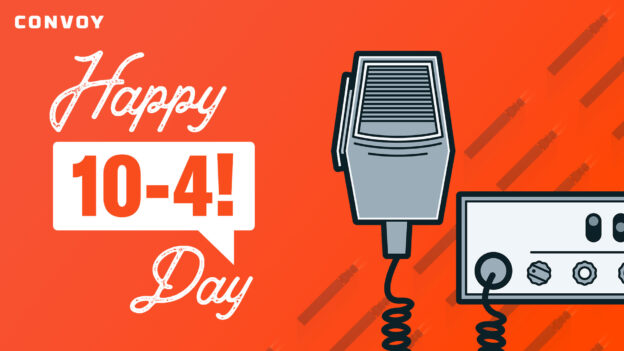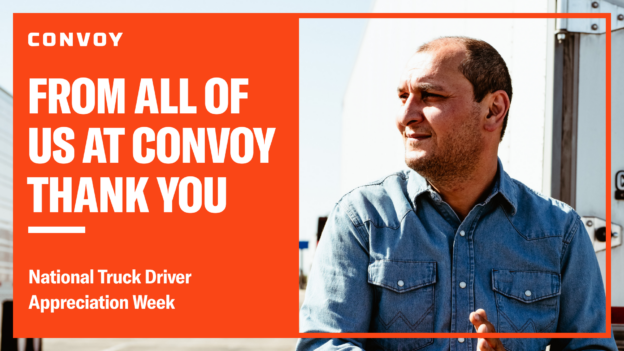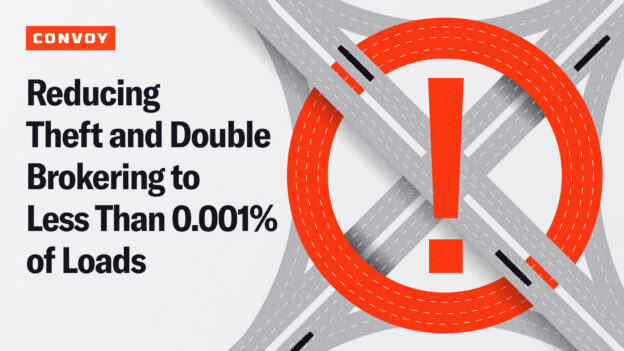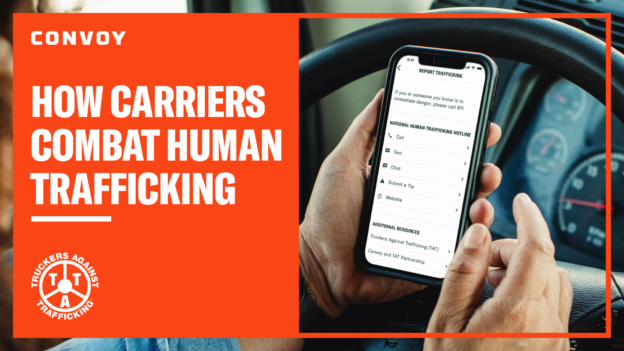Carrier Spotlight: Jacinda Duran
Carriers, Shippers • Published on May 3, 2022
This story originally appeared in Convoy’s “The Future of Freight,” featuring 40 thoughtfully curated pages on supply chain disruption, freight procurement, market volatility, and more.
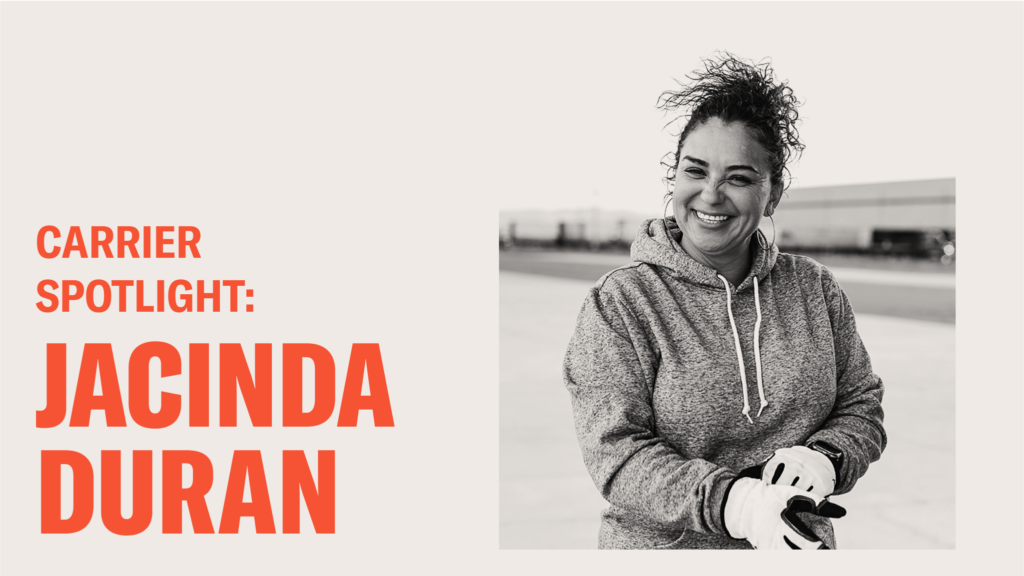
Jacinda Duran is a third-generation truck driver who spent her childhood on the road — today, driver life looks a little different. Known as Lady Truck’n to her fans, Jacinda shares her cross-country adventures with more than 65,000 followers (her “Truck’n Fam”) on social media. Her voice as a female truck driver has earned her coverage with Yahoo! Finance, Women In Trucking — even as presenter at the 2020 Emmys. We caught up with her on a recent stop in Florida to chat about what it’s like to be a woman in trucking, her tips for how shippers can improve their facility experience, and more.
On being a woman in trucking
I’m a third-generation lady truck’n. I grew up with strong female role models in the industry [Jacinda’s mom drove for 23 years, her grandmother for close to 50!], so I was never hesitant to get into this line of work. But I understand that not every woman has that experience. Safety is an obvious concern. I’m aware of the risks, but I’m not scared of them. I’m all about being warm without being welcoming. And I take precautions to make myself feel safer. I’ll stop early to shower, so when I get to wherever I’ll spend the night, I don’t have to get out of my truck. Despite the safety concerns, I’ve seen an increase in female truckers in recent years. I think women, myself included, like the independence and freedom of driving.
We’re seeing this too, in data from the Bureau of Labor Statistics. Effectively all of the growth in trucking industry payrolls over the past two years has been due to women: Since the eve of the pandemic, employment of women in the trucking industry is up 15%, whereas employment among men has been roughly flat.
On driving during the pandemic
The world stood still and went home, but truck drivers had to keep going. It felt like truck drivers were the last to know about everything. When I’m on the road, I’m not watching TV or the news. I felt very unprepared. We would arrive at shippers or receivers, and they would ask where our masks were, but we hadn’t received any PPE yet.
The pandemic elevated how isolating this industry can be. For a lot of drivers, the only human contact you get is during your stops at shippers and receivers. All of a sudden, we weren’t allowed to enter the facilities. Restaurants and rest stops closed. We had a hard time getting access to bathrooms or showers. But we couldn’t go home; we had to keep working. That’s why I was honored to present at the Emmys and show the world on behalf of truck drivers everywhere all the essential work that we were doing in the pandemic.
On technology in trucking
New technology is evolving the industry. The best part about working with companies like Convoy is the convenience — just getting on [the app] and booking a load. Everything is tracked, so we don’t have to call and check in the way my parents and grandparents had to when they drove. If you’re professional, on time, and perform well, you have access to prime loads from the beginning. We have more communication with dispatchers, shippers, and receivers, but also with our families and friends back home. If I want to visit my kids [Jacinda is mom to Mariah and Shane] or family, I can find loads to where I want to go.
On ways to deliver a better facility experience for carriers
People at facilities have a big impact on the carrier experience. It can be easy to corral truck drivers because we’re all there to do a job, but I would ask that shippers do their best to recognize that we are people, too. Getting a smile or being referred to by name are small things that can make a big difference.
One of my biggest struggles is finding overnight parking. I often have to reserve a spot; otherwise lots are full before I get there. It would be great if shippers offered more parking or worked with nearby lots to help carriers on their loads secure parking. And with more women truck drivers out there, shippers can help accommodate by offering clean women’s bathrooms — not just port-a-potties — and making sure lots are well lit at night. If I’m going to a facility I’ve never been to before, I’ll look at Convoy’s reviews to make sure I’ll feel safe and comfortable before I bid on the load.
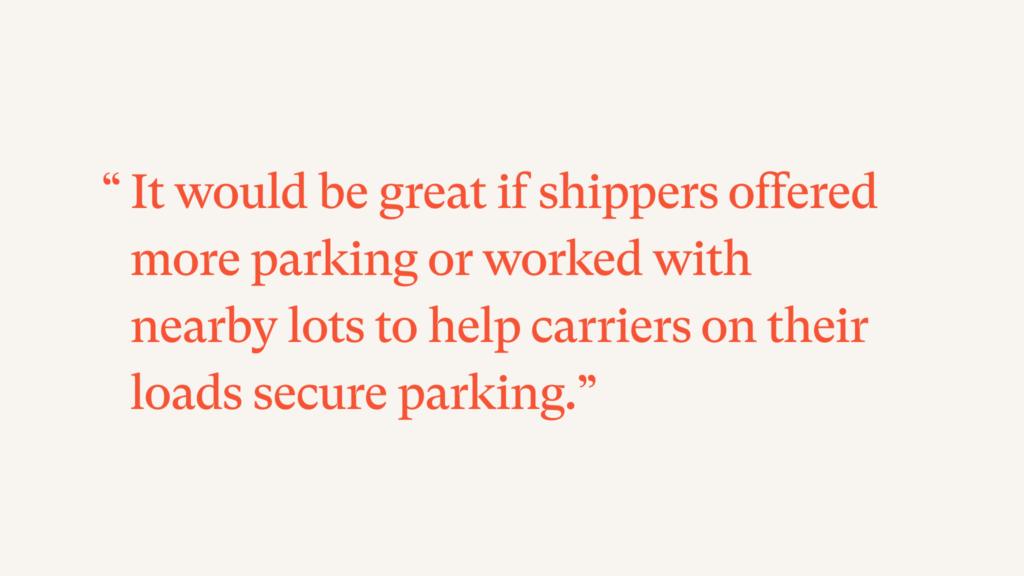
According to Convoy’s Annual Freight Insights Report, the characteristics of a top-performing, 5-star facility include:
- Service, which is a combination of the people who work at the facility and how enjoyable and communicative they are.
- Short to no loading dwell times
- A tie for third, between short to no wait times at the gate and trailer pool location
- Amenities, which can mean restrooms, port-a-potties, or truck stop benefits
- Parking
On building her Truck’n Fam
This job can be very isolating since you spend most of your days in a truck by yourself. That’s part of the reason I started sharing my journey on social media — to connect with people and build community. I love when I run into people on the road who know me from social media. One follower told me that I inspired her to get into trucking! I was lucky to have strong female role models in my mom and grandma, and by sharing my story I hope to be that for other women.
Keep in touch with Jacinda Lady Truck’n on Facebook, Instagram, and Twitter.
